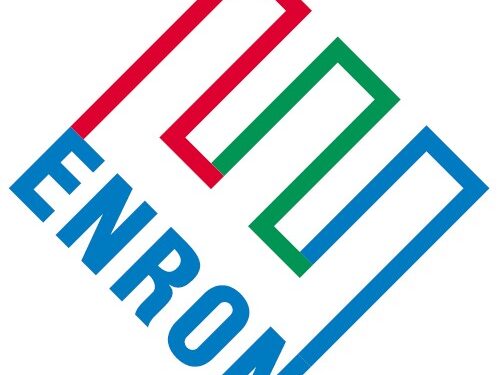In 2001, one of the largest and most respected corporations in the United States faced a spectacular downfall that would send shockwaves through the financial world. Enron, once touted as an energy giant and a model of corporate success, crumbled under the weight of a massive accounting scandal, leaving investors and employees devastated.
Enron’s meteoric rise began in the 1990s when it transformed itself from a traditional energy company into a global powerhouse, dabbling in various sectors such as energy trading, broadband services, and water distribution. The company’s success was fueled by aggressive accounting practices that inflated profits and hid debt, creating a facade of financial stability.
The cracks in Enron’s façade started to appear in 2001 when journalists and analysts began to question the company’s complex financial structures and accounting methods. The unraveling began when it was revealed that Enron had used special purpose entities (SPEs), off-balance-sheet partnerships, to conceal debt and artificially boost profits. These practices, which were legal but highly unethical, misled investors and creditors about the true financial health of the company.
As the truth emerged, Enron’s stock price plummeted, erasing billions of dollars in shareholder value. Employees, many of whom had invested their life savings in Enron stock, faced financial ruin as the company filed for bankruptcy in December 2001. The scandal not only shook Wall Street but also highlighted serious flaws in corporate governance and regulatory oversight.
One of the key players in the scandal was Enron’s accounting firm, Arthur Andersen, which was accused of negligence and complicity in the fraudulent activities. The firm eventually collapsed, and its demise added fuel to the already intense debate about the role of auditors in ensuring corporate transparency.
The Enron scandal prompted a wave of regulatory reforms aimed at preventing similar corporate debacles in the future. The Sarbanes-Oxley Act of 2002 was introduced to strengthen corporate governance, enhance financial disclosures, and hold executives accountable for their companies’ financial practices.
The Enron scandal remains a cautionary tale about the dangers of corporate greed, unethical behavior, and a lack of transparency. It led to increased scrutiny of corporate financial reporting, tighter regulations, and a reevaluation of the responsibilities of auditors. Enron’s collapse served as a wake-up call for the business world, reminding everyone of the importance of integrity and ethical conduct in the pursuit of corporate success.



Recent Comments